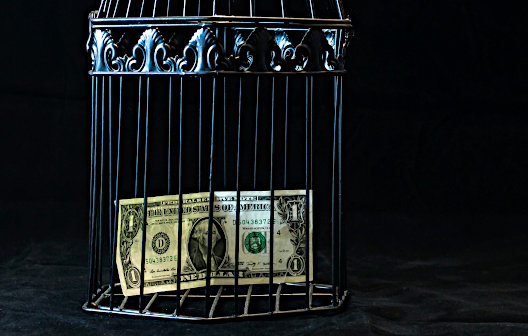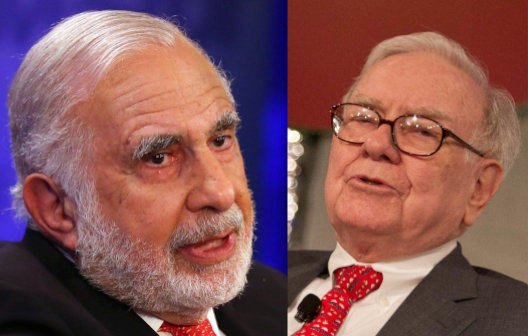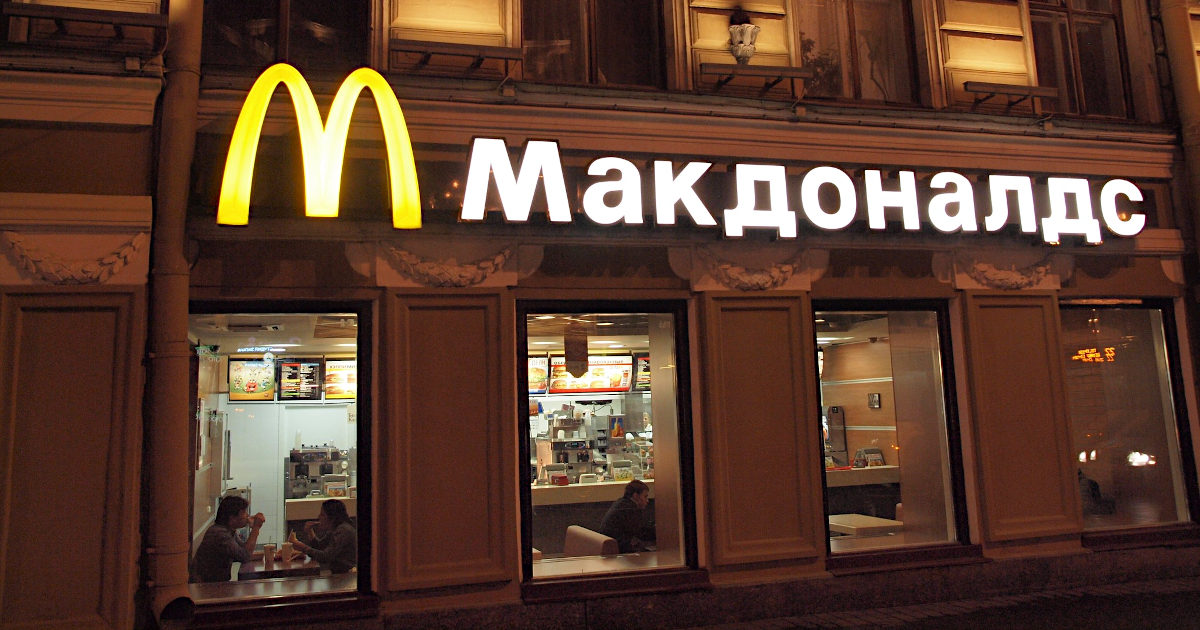Image: Sandra Cohen (Flickr)
Are ESG Social and Governance Policies Why Companies Stopped Russian Operations?
At a more rapid pace than ever before, large companies from the U.S. and non-American companies were quick to halt operations to support social concerns. These actions by companies doing business in Russia were in many cases in addition to sanctions mandated by the US and the other countries where the companies are headquartered.
For example, Nike (NKE) and McDonald’s (MCD) announced they are temporarily closing their Russian stores. Disney (DIS), Warner Bros. (WB), and Sony (SONY) paused the release of new films in Russia. Apple (AAPL), General Electric (GE), and Microsoft (MSFT) stopped selling their products within Russian borders. McKinsey, Ernst & Young, and other large accounting firms said they are leaving the Russian market, indefinitely.
Since February 24, the growing list now exceeds 300 companies with plans to close outlets, reassign staff or stop selling products in Russia, according to a running count by Yale management professor Jeffrey Sonnenfeld.
ESG Investing
In some ways, these quick decisions fit in with the recent ESG movement where companies have increasingly adopted policies on often debated social and political issues. The groundswell of adoption sometimes has been to cater to investor
appetite, although not always. Last year non-publicly owned Major League Baseball moved the planned location of the All-Star Game from Georgia to a state it felt better conformed to the MLB view on voting rights/privileges. While it is easy for a company to not align itself with unpopular actions, including invading a neighboring country, in the past, profits have been the overriding factor driving policy and actions. In the case of corporations leaving Russia, the speed at which these companies departed, often leaving assets behind, and in most cases leaving the companies financially worse off, is in part tied to the ESG adopted policies of these businesses.
Many of the policies were driven by and made to appeal to investors.
Betterment
Until relatively recently, companies rarely took a stand on social or political issues. In fact, many that are departing Russia did the opposite. A certain Firestone (BRDCY) tire that had been original equipment on Ford (F) Explorers were failing. The social impact was that they caused 271 fatalities in the early through the mid-90s. While both companies were made aware of the dreadful statistics, neither did anything until lawsuits and eventually, an act of Congress, forced their hand. Another car company, Volkswagen (VWAGY), had a clean diesel Jetta that was anything but clean – and Volkswagen knew it. Their response, until getting busted in 2014, was to install emissions software on more than a half-million diesel cars in the US. and 10.5 million worldwide. The software makes it appear the cars comply with EPA standards. Both Ford and Volkswagen, along with a host of other companies known for previous environmental or social misdeeds have handled the Russia decision differently; they have quickly backed out.
Public Relations
In addition to investor relations, another reason for the change over the years in management governance and policies is customers. News travels fast over the internet, even misleading news. Companies rely on reputations. One post-invasion poll found that 86% of Americans saw the invasion as unjustified. Many categorized Russian President Vladimir Putin with the same disdain as the likes of Adolph Hitler.
A good reputation is worth quite a bit for companies. Today social media “shaming” is taken seriously by CEOs. After #BoycottMcDonalds began trending on Twitter (TWTR) to protest its continued business in Russia, the fast-food chain said it was temporarily closing its stores there. Burger King (BK) has stayed with the promise of donating profits to help refugees and others. Car company Tesla (TSLA), CEO Elon Musk, agreed to provide Ukraine with free satellites after officials from Ukraine used Twitter to request them. Muck replied on the same social media platform.
While the decision to suspend operations often is presented as a trade-off between reputation and revenue, in this multi-stakeholder, interconnected world, it’s increasingly likely that harm to reputation will lead to an impact on revenue. While some companies—particularly those in consumer-packaged goods—have a strong sense of how their stances on social and political issues can affect consumer decisions and therefore revenue, other types of firms have more work to do in developing models to understand the impact of reputation on the bottom line.
Take-Away
The Russian invasion of Ukraine has highlighted the intersection of risk, reputation, and revenue. For many companies, the decision to suspend or cut ties may be a relatively easy one. Given the size of the Russian economy, low amounts of revenue may be involved. And the reputational harm of continuing business—and the benefit of announcing a withdrawal—may be high. But even if this is an easy case, investors need to know if the management of the companies they are invested in has a consistent policy for deciding whether and how to sever business ties. Inconsistency brings uncertainty for stockholders. It is likely many of the larger international companies are fine-tuning some of their policies right now. Smaller companies also should have consistent policies, even if their decisions do not make headline news – investors have become hyper-sensitive to a company’s impact.
Managing Editor, Channelchek
Suggested Reading
 Decentralized Finance, is it the Future?
|
 ESG Growing Pains Include Greenwashing
|
 What’s an ESG Score
|
 Can Buffett and Icahn Both be Right on Occidental Petroleum
|
Sources
https://www.conference-board.org/topics/geopolitics/cutting-ties-with-russia
https://stories.starbucks.com/press/2022/letter-to-partners-from-kevin-johnson-on-ukraine/
https://www.cnn.com/2022/03/08/business/mcdonalds-pepsi-coke-russia/index.html
https://som.yale.edu/story/2022/over-300-companies-have-withdrawn-russia-some-remain
https://www.cnet.com/news/apple-microsoft-and-other-tech-companies-stop-sales-in-russia/
https://www.mashed.com/789748/heres-why-boycott-mcdonalds-is-trending-on-twitter/
https://www.mlb.com/news/2021-all-star-game-draft-relocated
https://www.cbsnews.com/news/russia-ukraine-corporations-pull-out-invasion/
https://en.wikipedia.org/wiki/Firestone_and_Ford_tire_controversy
Stay up to date. Follow us:

|

